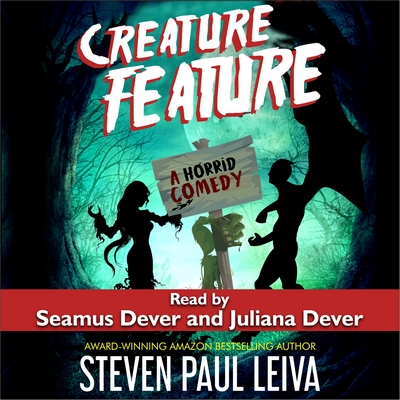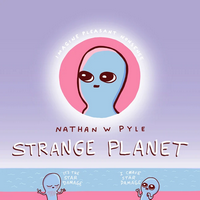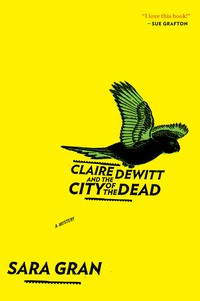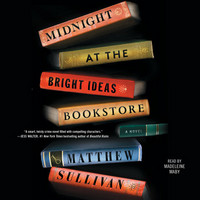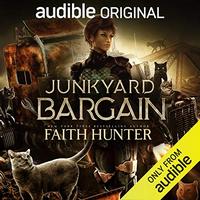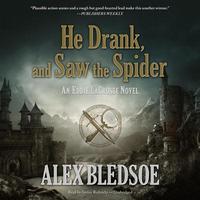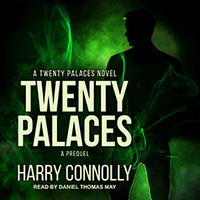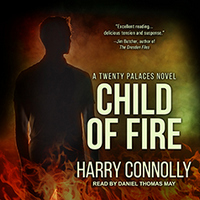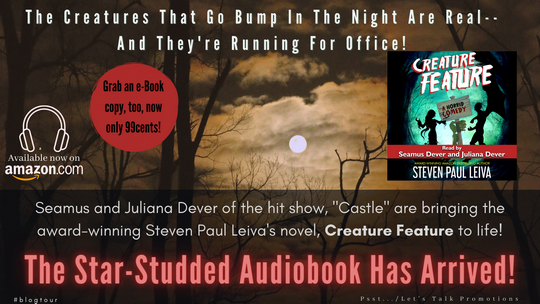
Earlier this morning, I talked about the book, and now I get to give you a little taste—I hope it hooks you the way it did me.
from Creature Feature by Steven Paul Leiva
Those who survived the calamity-that-almost-was entered into a conspiracy of silence. No—let me rewrite that, ‘conspiracy’ is too jaundiced a word. They entered into a pact of silence for fear of causing mass hysteria, and worldwide panic, and general consternation, and rampant indigestion.
But now is the time to finally reveal the truth so long hidden from you. And now is the time to speak of the hero and heroine (if I may not be too politically incorrect in using the feminine) who in the summer of ‘62 not only saved our bacon—but the whole damn pork enchilada. And only I can do that because only I know the whole story.
And as it is a story of black and white, put on your black and white specs and take a good look as we……enter deep into a dark swamp thick with bald cypress trees standing on their cypress knees as murky and mucky water flows around and all the cormorants and whooping cranes and anhingas have run, flown, or darted away; all the ducks have ducked underwater; and even the bald eagles and various hawks have lit out for safer territory as monumental hand-to-hand combat between a good-looking, well-muscled, male human hero in khaki clothes and a nugly, giant, two-legged lizardman of some exceptional martial skill, disturbs the usual peace of the swamp. A high-pitched scream is heard as a gorgeous blonde with perfect makeup and a blouse missing some buttons, fears for the life of the male human she may or may not have had carnal relations with and, not incidentally, her own life as well while clinging to the knee of a bald cypress tree.
Finally, the male human hero gets the upper hand and manages to push the lizardman into a shallow part of the swamp with strange gasses hovering close to the water’s surface. From his belt, the hero grabs a flare gun and does not hesitate to send a flare straight into the water, right between the lizardman’s legs. Hellfire explodes all around the lizardman. It is a fire that one knows is red and yellow with white-hot heat, but here it is only illuminated shades of gray. The lizard‐man, confused by the searing heat and pain lets out an unearthly howl as he slowly cooks to death. The good-looking, well-muscled, male human hero in khaki grabs the gorgeous blonde with perfect makeup and a blouse missing some buttons, and holds her tight as three-dimensionally looking letters in two dimensions fly up from nowhere and smack against the screen spelling out ATTACK OF THE LIZARDMAN and THE END and MADE IN HOLLYWOOD U.S.A.
The broadcast of this early 1950s horror flick being over, the small studio at Chicago’s WAGO-TV station bustled and burst with color (colorful set, colorful language from frustrated technicians) as they switched to live to finish this episode of Vivacia’s House of Horrors. The beautiful Vivacia herself—pale of face framed by long raven’s wing (what else?) black hair and wearing a slinky and slick ebony satin dress with a plunging neckline (or décolletage if we want to bring a little lift to the thought)—lounged sensually on her huge, round bed with blood-red silk sheets (the producer had gotten the idea from Chicago native Hugh Hefner).
She looked directly into camera number one and held up what looked exactly like a barbecued lizard on a stick and said in her deep, silky voice, “Oooooooo—lizard flambe!” With a ravenous, anticipatory smile, Vivacia parted her lips, brought the lizard flambe to her mouth, and took a generous bite full of sexual subtext. She chewed, savored, swallowed, then said, “I love it!”
A snort and a whimper came from her side as a little hunchback man with a twisted face bounced on the bed next to her. “Would you like a little bite, Grossie?”
Read the rest in Creature Feature by Steven Paul Leiva–or listen to the audiobook Narrated by Seamus Dever and Juliana Dever–to see what happens from here.
Thanks to Let’s Talk Promotions and Psst…Promotions for this excerpt!
![]()



